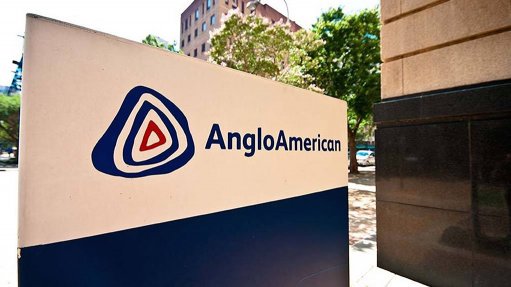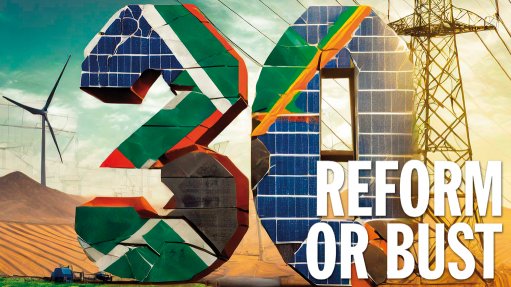It’s carmakers against miners in battle over China-funded metals
US policymakers, eager to foster the country’s own electric-car supply chain, mostly agree Chinese raw materials shouldn’t play a prominent role in tomorrow’s American-made EVs. But what about battery materials produced with Chinese capital in other nations? Does that count?
That thorny question has emerged as a key hurdle as the US Treasury Department fleshes out the minute details in President Biden’s signature climate bill. Back in March, it released partial guidance on supply-chain requirements that lets some vehicles qualify for a $7 500 tax credit — but it hasn’t yet clarified how to classify so-called foreign entities of concern (FEOC), government-speak for businesses or groups owned or controlled by geopolitical foes like China and Russia. Starting next year, an EV can’t qualify for the tax credit if any of its battery components were manufactured or assembled by an FEOC. In 2025, an EV becomes ineligible if its battery contains critical minerals that were extracted, processed or recycled by an FEOC.
Those details are at the center of an intense lobbying battle that has pitted US automakers trying to lower the cost of electric vehicles against mining companies and labor unions eager to fast-track domestic production of critical minerals — and the jobs that come with it. Automakers argue they need more leeway on the rules because it’s currently impossible to produce EV batteries without inputs that have at least some Chinese ownership, while US materials producers contend the domestic supply chain won’t succeed if China’s playing a role. When it finally comes, the decision could impact the use of nickel from Indonesia, copper from Chile and lithium from Australia, otherwise friendly countries where Chinese investors own or fund large swathes of mineral production.
In August, it will be a full year since the Inflation Reduction Act was signed into law. Treasury was originally supposed to deliver guidance on the IRA in December; it hasn’t completed the task. The pace of rulemaking has hamstrung billions of dollars of investment by automotive companies and battery suppliers who are still waiting for the new rules of the road.
“If you’re in the US, there are still a lot of unknowns,” said Doug Johnson-Poensgen, the chief executive officer of supply-chain verification company Circulor. “For now, the car manufacturers are in a holding pattern working out what do they need to do in order to comply by the end of this year and onwards.”
Both sides are lobbying hard for their case. The discussions have taken place in both traditional DC haunts and in the Motor City itself. In May, the heads of delegations to the Indo-Pacific Economic Framework, a replacement for the Trans-Pacific Partnership intended to curb China’s trade influence in Asia, met for intense meetings as well as a social Detroit Tigers baseball game, with a box suite and seats along the first-base line. Although that event was meant to be a work-free zone, according to a person familiar with the outing who wasn’t authorized to discuss it publicly, there was a pull-aside room in the suite for one-on-one conversations.
Stellantis, owner of the Jeep and Ram brands, and battery-maker LG Chem, have urged Treasury to add countries like Indonesia to the IRA framework by striking free-trade deals on critical minerals with them, according to public comments posted by the IRS. Indonesia accounts for about half of the world’s nickel production, with the Philippines, Russia, New Caledonia and Australia rounding out the top five producers.
For the raw materials producers, the argument boils down to this: The US will never build a competitive domestic EV supply chain if Chinese-funded metals and parts can keep flowing in. China today produces around 70% of the world’s lithium-ion batteries, according to Benchmark Mineral Intelligence. It’s the clear leader when it comes to processing many of the critical minerals that go into them, too. Nickel, cobalt and lithium are the three major components by volume needed to produce lithium-ion batteries used to power electric cars, trucks and SUVs.
“This country chased the China price for two decades and it got them in trouble. You can’t put your whole country out of work over a cheap price,” said Tom Conway, international president of the United Steelworkers, whose union represents mining and materials workers in the US. “Getting the supply chain is the challenge, and that’s where we’re focused and working to make sure that anything that gets stood up we have a hand in making it.”
Given China’s vast sway over nickel production in places like Indonesia, the argument goes, an unexpected global crisis involving China could effectively cut off the US and many of its allies from a key ingredient needed to make the batteries of the future. To aid the transition, the US could allow some nickel from certain nations at a certain threshold for a designated number of years until the domestic industry can ramp up its supply, Conway said. The US industry could be required to hit benchmarks to prove it’s making progress, he said.
Meanwhile, global automakers, who have pledged to electrify their lineups to meet tightening global emissions standards, have been scouring the globe to secure battery materials as they race to stand up a new supply chain — including in many of the nations now under the microscope for their Chinese ties. Ford Motor bought a stake in an Indonesian nickel plant alongside China’s Zhejiang Huayou Cobalt this spring, while Tesla. struck a $5 billion deal with Indonesia last year that also includes Huayou. Carving China out of the EV supply chain is directly at odds with their drive to lower the cost of EVs, which aren’t projected to reach price parity with combustion-engine cars in most regions for years still, according to BloombergNEF.
In short, Biden’s administration needs to walk a fine line: Make the rules too permissive, and Chinese companies will benefit from the US’s EV battery industry; make them too restrictive, and it could hamper the pace of EV adoption in America. The one thing both sides agree on is that they need clarity, and fast.
“Regardless of where the rules land, they must be as clear and administrable as possible. Industry needs to know exactly which countries, suppliers and types of transactions — as well as which components, minerals, and processing steps — are subject to the rules,” Omar Vargas, GM’s head of global public policy, wrote in public comments in June. “With sufficient time and effort industry can likely adapt to a broad spectrum of outcomes on this front, but only if we know exactly what is and is not permitted. Scope is important, but clarity is key.”
Comments
Press Office
Announcements
What's On
Subscribe to improve your user experience...
Option 1 (equivalent of R125 a month):
Receive a weekly copy of Creamer Media's Engineering News & Mining Weekly magazine
(print copy for those in South Africa and e-magazine for those outside of South Africa)
Receive daily email newsletters
Access to full search results
Access archive of magazine back copies
Access to Projects in Progress
Access to ONE Research Report of your choice in PDF format
Option 2 (equivalent of R375 a month):
All benefits from Option 1
PLUS
Access to Creamer Media's Research Channel Africa for ALL Research Reports, in PDF format, on various industrial and mining sectors
including Electricity; Water; Energy Transition; Hydrogen; Roads, Rail and Ports; Coal; Gold; Platinum; Battery Metals; etc.
Already a subscriber?
Forgotten your password?
Receive weekly copy of Creamer Media's Engineering News & Mining Weekly magazine (print copy for those in South Africa and e-magazine for those outside of South Africa)
➕
Recieve daily email newsletters
➕
Access to full search results
➕
Access archive of magazine back copies
➕
Access to Projects in Progress
➕
Access to ONE Research Report of your choice in PDF format
RESEARCH CHANNEL AFRICA
R4500 (equivalent of R375 a month)
SUBSCRIBEAll benefits from Option 1
➕
Access to Creamer Media's Research Channel Africa for ALL Research Reports on various industrial and mining sectors, in PDF format, including on:
Electricity
➕
Water
➕
Energy Transition
➕
Hydrogen
➕
Roads, Rail and Ports
➕
Coal
➕
Gold
➕
Platinum
➕
Battery Metals
➕
etc.
Receive all benefits from Option 1 or Option 2 delivered to numerous people at your company
➕
Multiple User names and Passwords for simultaneous log-ins
➕
Intranet integration access to all in your organisation


















